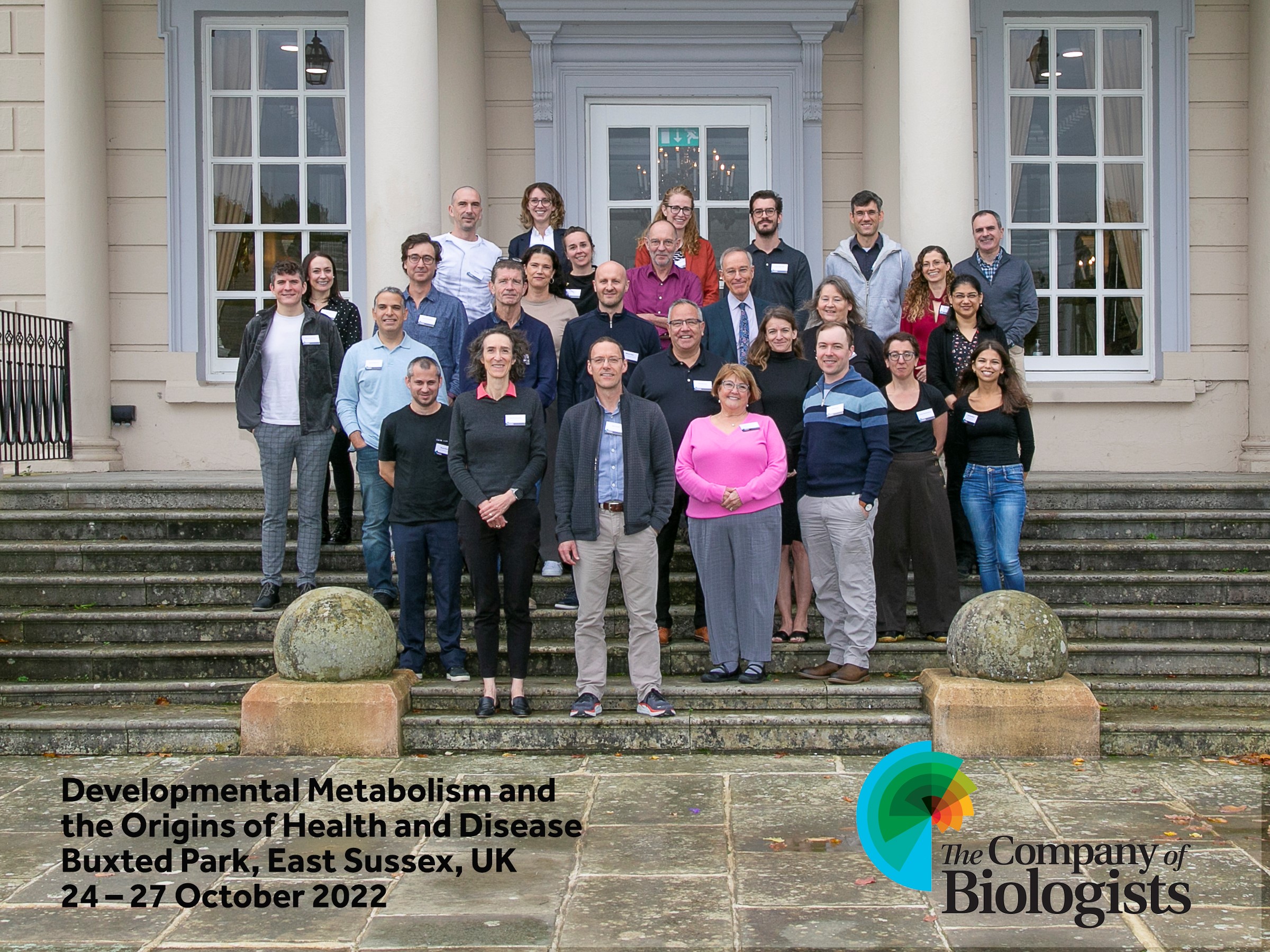Developmental metabolism and the origins of health and disease Workshop
Posted by Zoe Mann, on 29 November 2022
By Zoe Mann, Ahmed Mahmoud, Ana Rita Diogo Robelo and Neha Agrawal
Hidden away in the beautiful countryside, a group of scientists gathered at Buxted Park to brainstorm the roles of metabolism in the developmental origins of health and disease (DOHaD). In this peaceful setting, early career researchers (ECRs) had the opportunity to network and exchange ideas with leaders in their respective fields. Being one of the first in-person workshops since the pandemic, energy levels and excitement were high.
The program, which was well organized by Alex Gould and Sally Dunwoodie, was filled with interdisciplinary presentations and stimulating, fruitful discussions between scientists, which continued throughout the day over lunch, coffee breaks, long leisurely walks and well into the evening over dinner and drinks. The venue and small size of the Workshop promoted engagement between participants in a way that is not possible at larger scientific meetings. Also, attendees were encouraged to present unpublished data, which prompted useful and interesting discussions about the most recent advances in DOHaD. For the majority, this workshop bore new collaborations, ideas and friendships.
Throughout the week, we listened to outstanding talks exploring the role of developmental metabolism in worms, flies, xenopus, birds, mice and humans. The interdisciplinary nature of this Workshop revealed that regardless of the model system and field of study pursued by the participating scientists, a common theme remained consistent, which is the importance of the DOHaD in their respective fields. Furthermore, it was fascinating and refreshing to hear many works that bridge together transcriptomics, proteomics and metabolomics for a comprehensive understanding of how genetics, nutrition and environment can modulate metabolism and, consequently, development. For example, metabolic disruptions in the placenta can have a defining role in disease manifestation in multiple organs later in life. Similarly, early exposure to hypoxia during development can have lasting detrimental metabolic effects on offspring. Understanding these processes is therefore informative not only for developmental biology, but also for informing clinical research and public health policy.
A ‘hot topics’ discussion on the penultimate day was helpful in identifying important ideas and focus areas for further development in this field. The role of cutting-edge technologies, such as spatial metabolomics and assessing metabolomes at single cell resolution, was highlighted. In particular, the need to communicate the importance of DOHaD in both research and clinical settings was strongly emphasized throughout the meeting. Indeed, broadening our view will allow the scientific community to acknowledge that, not only the genetic background, but also the metabolic state of an organism, can be associated with and even drive developmental defects or tumorigenesis. Additionally, a major conclusion from the Workshop was the need to advocate for increased awareness of DOHaD, even amongst developmental biologists.
In this focused setting, the friendly environment and small community inspired new interdisciplinary research aimed at uncovering the mechanistic links between early-life metabolism and adult health and disease. Should the chance to take part in one of these Company of Biologists Workshops arise, do not hesitate to apply. You will hear about cutting-edge research, build new and inspiring collaborations, network with leaders in the field and, above all, have fun.



 (2 votes)
(2 votes)